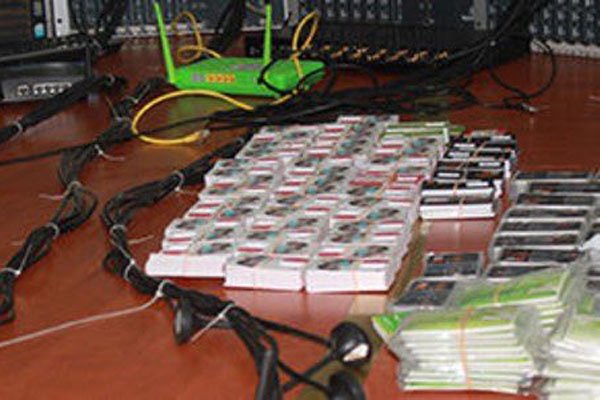Detectives have arrested two people, a Safaricom employee and a university student, in connection with SIM card fraud.
The Directorate of Criminal Investigations (DCI) said in a tweet that among seized from the suspects on Friday were 2,160 unused Safaricom SIM cards and three M-Pesa Safaricom booklets.
The items recovered following the arrest are: “One Laptop make Apple, 2,160 unused Safaricom SIM cards, 44 used Safaricom SIM cards, 5 till agent numbers, 3 M-Pesa booklets, internet booster router, two mobile phones — a blackberry and Samsung J7.”
The suspects have been identified as Mr Maurice Musoti, who is said to be a Safaricom employee, and Mr Rian Abaga Nyagaka, a fourth year engineering student at the Jomo Kenyatta University of Agriculture and Technology.
CA WARNING
Their arrest comes two days after the Communication Authority of Kenya warned mobile phone users against disclosing sensitive personal identification information (PIN) to third parties, amid widespread reports of SIM card swap fraud.
In the SIM card swap fraud, the fraudster usually makes a call pretending to be an employee of a mobile network operator.
When a mobile user picks the call, the fraudster then asks the unsuspecting mobile subscriber to share their information such as their national ID number, mobile money PIN, or SIM card PIN, among others.
After obtaining the information, the fraudster then goes ahead to swap the SIM card— thereby gaining access to all the SIM services, including mobile money transfer, mobile and internet banking, voice calls, SMS, data services and any other service that can be accessed through the SIM.
SAFARICOM CAUTION
But Safaricom has said that the network does not solicit for personal information from its subscribers for whatever reason.
In a statement, the director of risk management at Safaricom Nicholas Mulila urged customers to call the provider through its customer care lines 100 or 200 for clarification and assistance whenever in doubt of any transaction.
“As a precautionary measure against social engineering, enabled by sharing of personal details, we would also like to remind our customers to safeguard information such as SIM and M-Pesa PINs, dates of birth and national ID numbers,” Mr Mulila said.
It is believed that these crafty criminals collude with insiders within the service provider to ask for personal information about subscribers’ accounts before defrauding them and blocking their SIM cards.
The mobile service provider has also cautioned its subscribers against responding to calls by people purporting to be from Safaricom if the caller ID is any other number besides its official number: 0722 000 000.
Customers have also been advised to report such cases to the police as soon as they occur.
Already, the DCI has launched an inquest into this scheme through which unsuspecting Kenyans have been losing their hard-earned money.
A survey conducted in 2017 by Truecaller revealed that Kenyan mobile phone subscribers were among those who are highly targeted by fraudsters in Africa.



